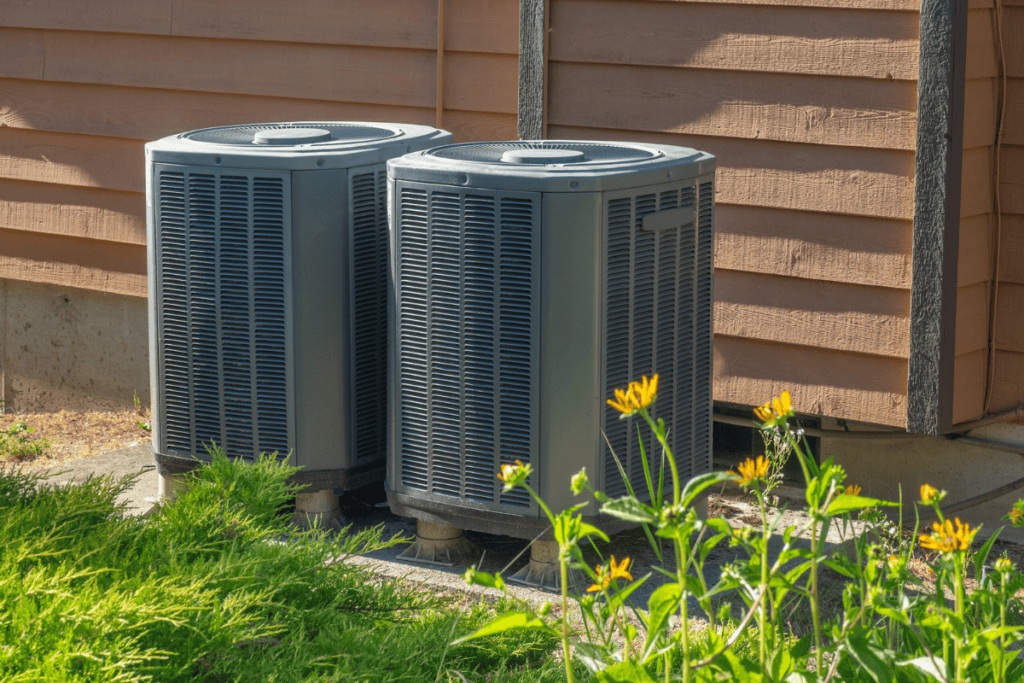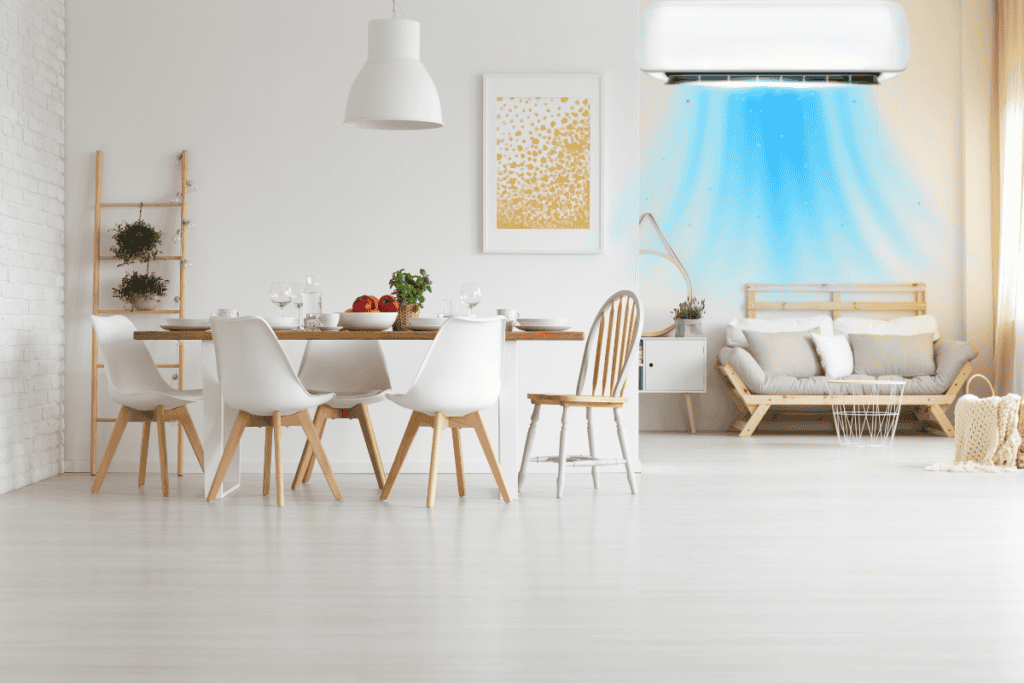As the scorching summer sun beats down, homeowners across the country find themselves pondering a crucial question: do they need to cover their air conditioner units? It’s a debate that has been raging for years.
On one hand, covering your AC unit can provide a layer of protection against debris, UV rays, and harsh weather conditions. But on the other hand, some experts warn that AC covers can trap moisture inside the unit, leading to a host of problems down the line.
In this article, we’ll discuss about air conditioning maintenance and explore the pros and cons of using an AC cover during the summer months. As your trusted HVAC partner, we understand that every homeowner wants to keep their AC unit in top shape, maintaining reliable and efficient cooling when they need it most.
Contents
Benefits of Covering Air Conditioner in Summer
1. Protection from Debris and Foliage
As the hot months roll in, trees and plants flourish, shedding leaves, twigs, and pollen that can accumulate on your outdoor AC unit. This debris can obstruct airflow and reduce the efficiency of your air conditioning system. By using an AC cover, you can shield your unit from this unwanted dust, ensuring optimal performance throughout the season.
According to the U.S. Department of Energy, “covering the outdoor unit of a central air conditioner will protect the unit from winter weather and debris.” While this statement refers to winter protection, the sam/e principle applies to safeguarding your AC unit during summers when foliage and dust are abundant.
2. Prevention of UV Damage
Prolonged exposure to the sun’s UV rays can take a toll on your outdoor AC unit. Over time, UV radiation can cause degradation and damage to the exterior components, particularly the condenser coils.
As reported by The AC Doctors, a professional HVAC company, “UV radiation from the sun can cause degradation and damage to the exterior components of the AC unit, particularly the condenser coils.”
3. Reduction of Exposure to Weather Elements
Although AC units are built to withstand outdoor conditions, exposure to extreme weather elements like rain, hail, and strong winds can still cause damage over time. Using an AC cover can provide an extra layer of protection, shielding your unit from these harsh weather conditions and helping to extend its lifespan.
4. Prevention of Rust and Corrosion
Moisture and humidity can be detrimental to your air conditioning unit, leading to rust and corrosion on metal components such as the compressor and condenser coils.
AC covers can help keep your unit dry and shielded from rainwater, dew, and humidity, mitigating the riskof rust formation and maintaining the longevity of your HVAC system.
Cons of Covering AC Units in Summer

1. Trapping Heat and Moisture
While AC covers offer protection, they can also inadvertently trap heat and moisture inside the unit, especially if the cover is not breathable or fits too tightly. This trapped heat and moisture can create a humid environment conducive to rust, corrosion, and electrical issues within the unit, potentially causing more harm than good.
2. Interference with Airflow
Proper airflow is essential for the efficient operation of your air conditioner. However, improperly fitted covers or those made of non-breathable materials can obstruct airflow around the AC unit.
When airflow is restricted, your air conditioning system may struggle to cool effectively, leading to increased energy consumption, reduced efficiency, and potential overheating of components.
3. Attracting Pests
Covering your AC unit can create a dark and sheltered environment that attracts pests like rodents, insects, and small animals seeking refuge from the heat. These pests may build nests, chew through wiring, or cause other damage to the unit, resulting in costly repairs and maintenance.
Moreover, the presence of pests can pose serious health risks. According to the U.S. Environmental Protection Agency (EPA), “Serious, even fatal, diseases can be spread or triggered by pests such as vectors, other insects, rodents, or microbes.”
4. Accumulation of Condensation
In humid climates or during periods of high humidity, covered AC units may experience condensation buildup beneath the cover. This condensation can promote mold and mildew growth, leading to foul odors, indoor air quality issues, and potential damage to internal components of the unit.
It’s important to note that mold can also trigger allergies and pose health risks. The Centers for Disease Control and Prevention (CDC) states, “Mold is also harmful for health and can cause allergies.”
5. Voiding Manufacturer Warranties
Before deciding to cover your AC unit, it’s crucial to review your manufacturer’s warranty terms. Some AC unit manufacturers explicitly state that using an unauthorized cover can void the warranty. If you choose to use a cover and any damages or malfunctions occur as a result, you may be denied warranty coverage, leaving you responsible for costly repairs.
Factors to Consider Before Covering an AC Unit in Summer
When deciding whether to cover your air conditioner during the hot months, it’s essential to consider various factors that can impact the effectiveness and necessity of using an AC cover. These factors include climate and environmental conditions, the type and location of your AC unit, manufacturer recommendations, energy efficiency, and maintenance access.
1. Climate and Environmental Conditions
The climate and weather conditions in your area play a significant role in determining whether covering your outdoor AC unit is necessary. In humid climates, using an air conditioner cover may trap moisture inside the unit, leading to mold growth and potential damage. On the other hand, in dry climates, a cover can help protect your AC unit from dust accumulation.
If you live in a region prone to heavy rainfall or extreme weather events, covering your outdoor air conditioning unit can provide an extra layer of protection against water damage. However, in areas with mild weather conditions, covering your AC unit may not be necessary.
2. Type and Location of the AC Unit
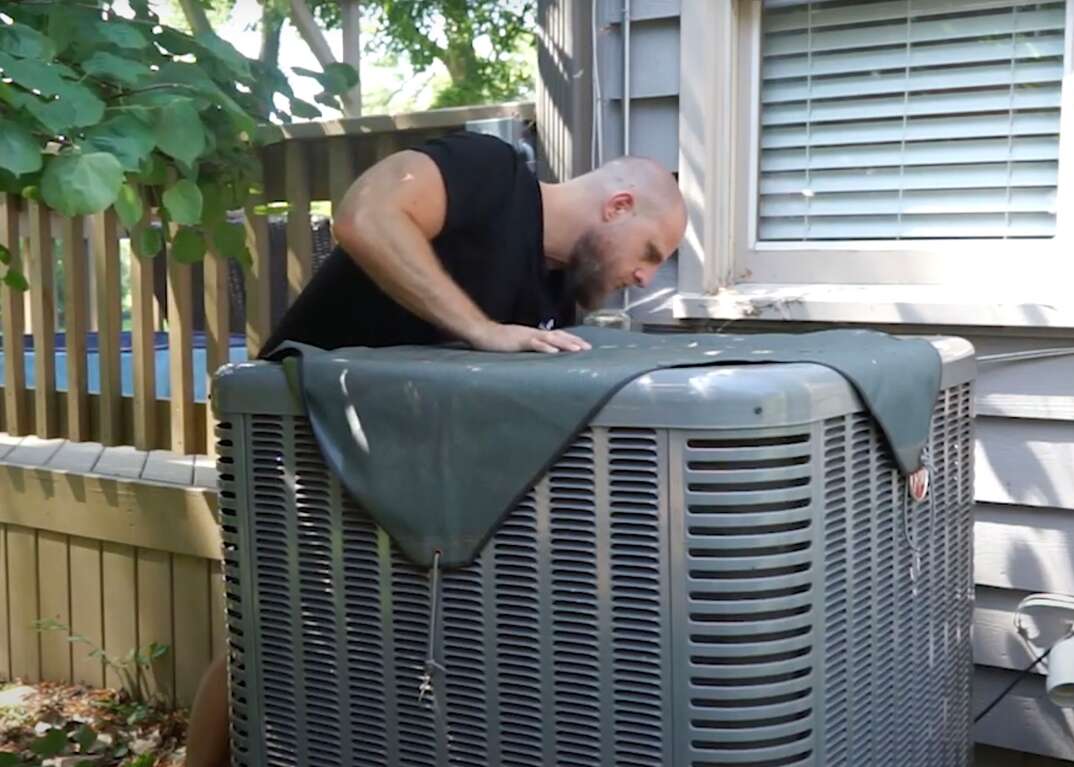
Window AC units, however, are usually installed indoors and may not require covering unless they are in a particularly dusty or humid environment. Additionally, the location of your AC unit, such as whether it is in a shaded area or exposed to direct sunlight, can impact its susceptibility to damage and the need for a cover.
3. Manufacturer Recommendations
Before covering your air conditioner, it’s crucial to consult your AC unit’s manufacturer guidelines. Many manufacturers provide specific recommendations on whether covering the unit is necessary and offer guidance on selecting the appropriate cover. Some may even offer specialized covers designed for their units, maintaining the best fit and protection.
Following the manufacturer’s recommendations can help you make an informed decision and prevent inadvertently causing damage to your AC unit by using an incompatible cover.
4. Impact on Energy Efficiency
While covering your air conditioner can protect it from external elements, it’s essential to consider the potential impact on energy efficiency. An AC cover may trap heat and reduce airflow around the unit, leading to increased energy consumption and reduced cooling performance.
5. Maintenance and Inspection Access
When choosing an air conditioner cover, make sure that it allows for easy access to the unit for maintenance and inspection purposes. Regular maintenance, such as cleaning the air filter and inspecting for damage, is crucial for keeping your AC unit running efficiently and preventing costly repairs.
Opt for a cover that can be easily removed and reinstalled, enabling you to perform necessary maintenance tasks without hassle. Schedule regular inspections to keep your AC unit in top shape throughout the summer season.
Best Practices for Protecting AC Units in Summer
In addition to considering whether to cover your air conditioner, there are several best practices you can follow to protect your AC unit and ensure its optimal performance during summers.
1. Regular Cleaning and Maintenance
Performing routine cleaning and maintenance is essential for keeping your AC unit running smoothly and efficiently. Regular maintenance helps prevent issues such as reduced cooling capacity, overheating, and premature failure, ultimately extending the lifespan of your air conditioner and minimizing the need for costly repairs.
2. Using Appropriate Covers

Ensure that the cover fits snugly but not too tightly to avoid trapping moisture, which can lead to mold growth and damage.
3. Clearing Vegetation and Debris
Keep the area around your AC unit clear of vegetation, debris, and other obstructions that could impede airflow or pose a risk to the unit’s functioning. Trim bushes, shrubs, and overhanging branches to maintain a clear perimeter, and regularly remove leaves, grass clippings, and other litter that may accumulate around the unit.
4. Monitoring for Signs of Trouble
Stay alert for any signs of trouble with your air conditioner, such as unusual noises, reduced cooling performance, or visible damage to components. If you notice any issues, contact a professional HVAC technician promptly to diagnose and resolve the problem before it escalates into a more serious and costly issue.
Contact HVAC Angel For AC Maintenance
While it may be tempting to tackle AC maintenance tasks on your own, the complexities of modern HVAC systems often require the expertise of seasoned professionals. That’s where HVAC Angel comes in – your trusted partner for all your air conditioning needs.
At HVAC Angel, we understand the importance of a well-maintained AC unit in keeping your home comfortable and your energy bills under control. Our team of highly skilled technicians is dedicated to providing comprehensive AC maintenance services tailored to your specific needs.
From thorough inspections and cleanings to timely repairs and replacements, we have the knowledge and tools to keep your AC unit running efficiently throughout the hot summer months.
When you choose HVAC Angel for your AC maintenance, you can rest assured that your HVAC unit, including any heat pump components, is in capable hands. Don’t let AC troubles disrupt your summer comfort.
Trust HVAC Angel to be your guardian of cool, clean air. Contact us today to schedule your AC maintenance appointment and experience the difference that our professional expertise can make in keeping your home a refreshing oasis all season long.
Frequently Asked Questions
1. Can we cover an AC indoor unit?
Covering an indoor AC unit is generally not necessary or recommended. Indoor units are designed to operate within the controlled environment of your home and do not require protection from external elements.
2. What happens if you run AC with cover on?
Running your air conditioner with the cover on can have detrimental effects on its performance and longevity. Covers can restrict airflow, causing the unit to work harder and consume more energy. This strain can lead to overheating, reduced cooling capacity, and potentially damage components such as the compressor or fan motor.
3. When should I remove my AC cover?
If you have covered your outdoor AC unit during the winter months, it’s essential to remove the cover before turning on your air conditioner for the first time in the summer. Removing the cover allows for proper airflow and prevents any debris or moisture that may have accumulated under the cover from damaging the unit.
4. What is the best material to cover an air conditioner?
When selecting a cover for your outdoor air conditioner, choose a material that is breathable, waterproof, and UV-resistant. Mesh covers made from polyester or vinyl are popular options as they allow for adequate airflow while protecting the unit from debris and direct sunlight. Avoid using plastic tarps or non-breathable materials that can trap moisture and promote rust or mold growth.
5. Should you cover AC in rain?
While it may seem counterintuitive, covering your AC unit during rain is not necessary. AC units are designed to withstand exposure to rain and moisture, and a cover may actually trap water in the unit, leading to damage. However, if you live in an area prone to heavy storms or hurricanes, using a sturdy cover to protect your AC unit from flying debris can be beneficial

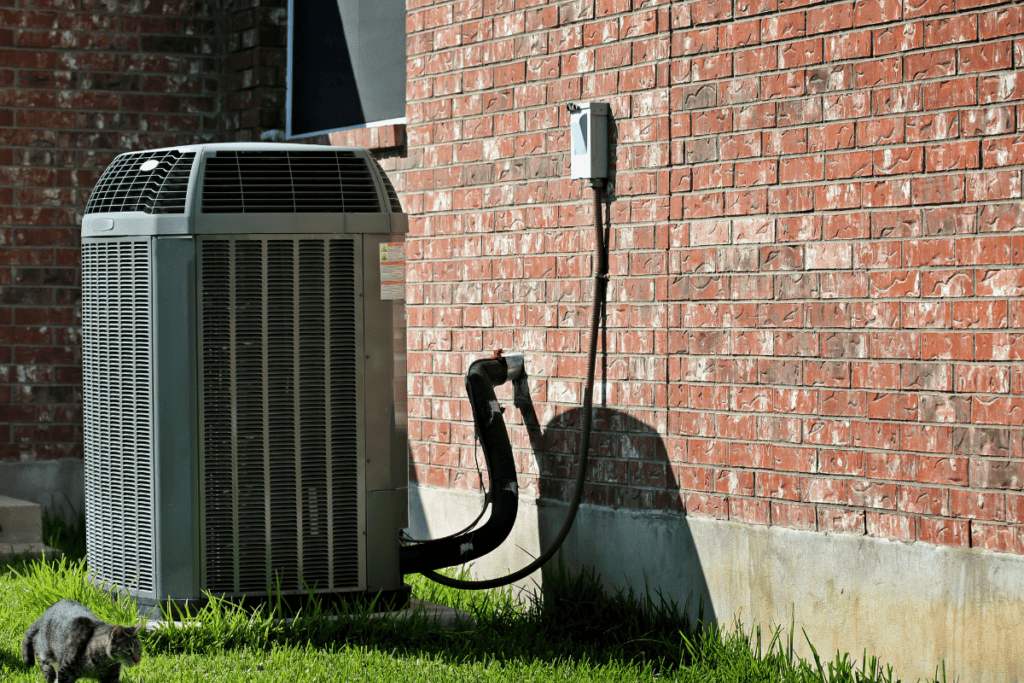
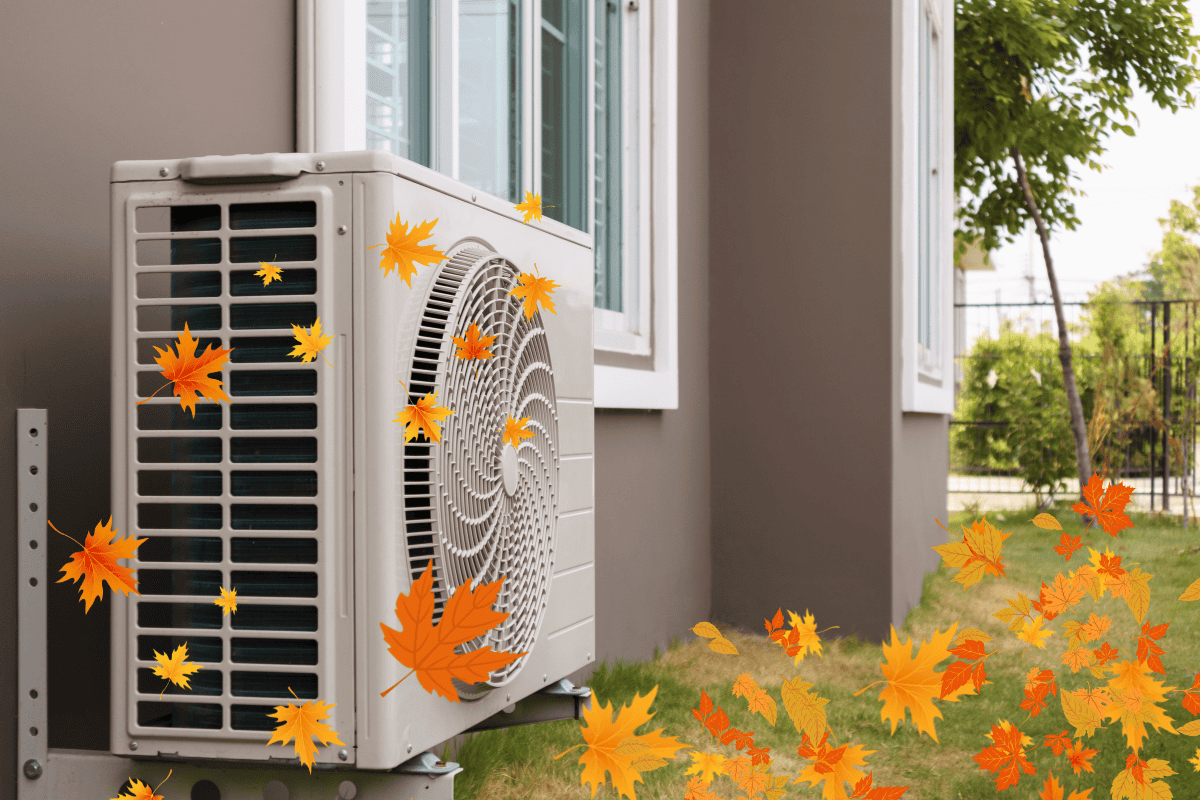
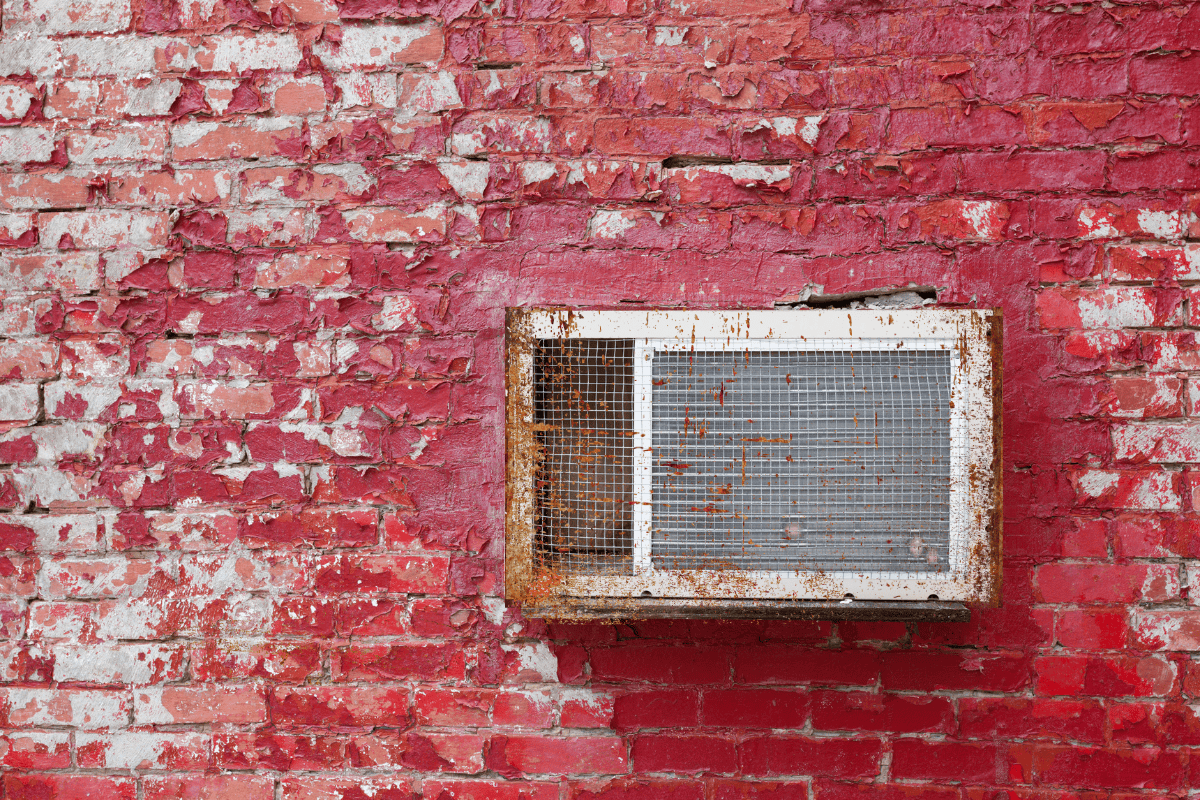

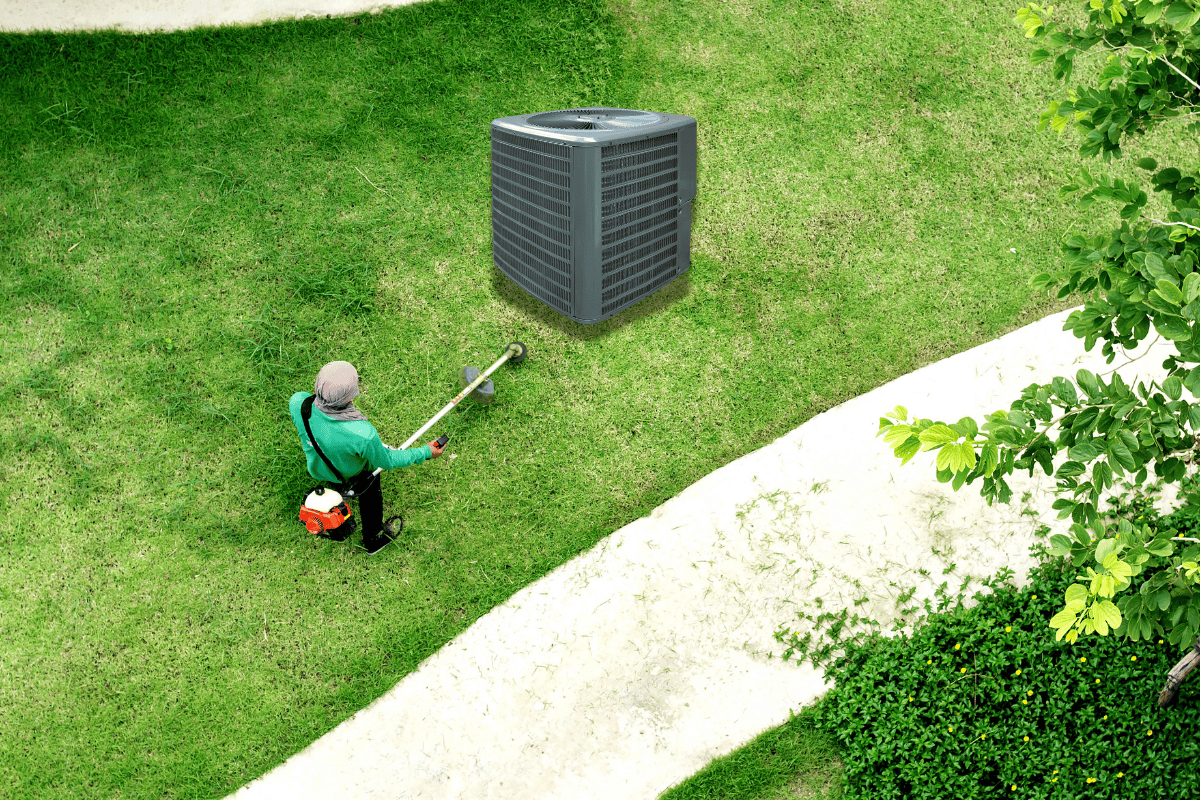
![9 Reasons That Causes an AC Unit to Freeze Up: [Troubleshooting Guide]](https://hvacangel.com/wp-content/uploads/2024/05/what-causes-a-ac-unit-to-freeze-up-1024x683.png)
